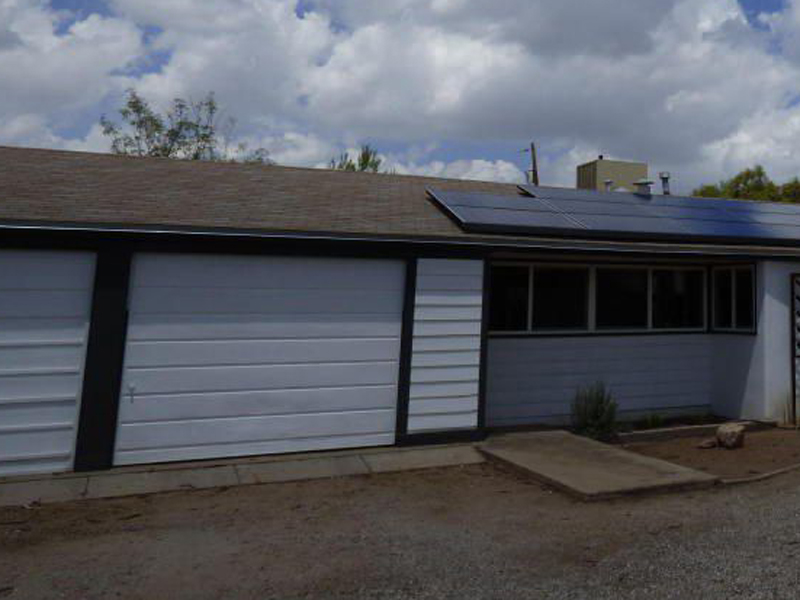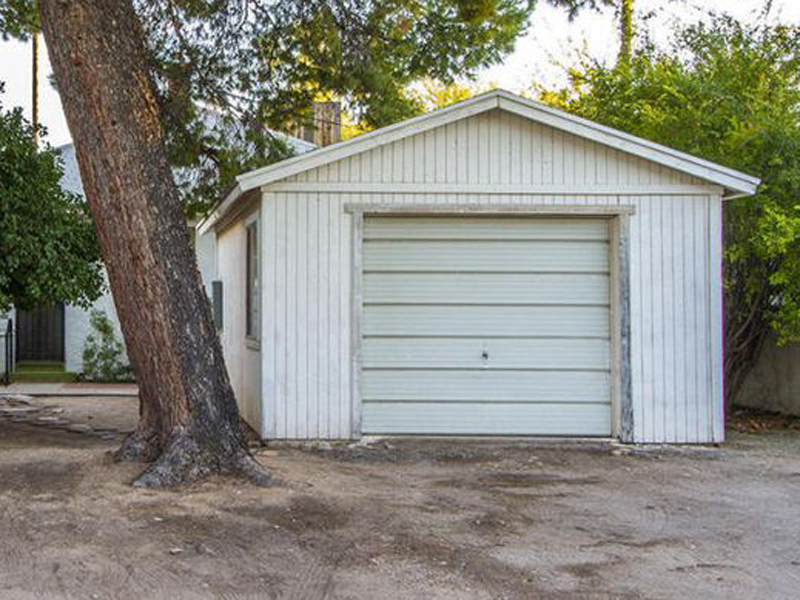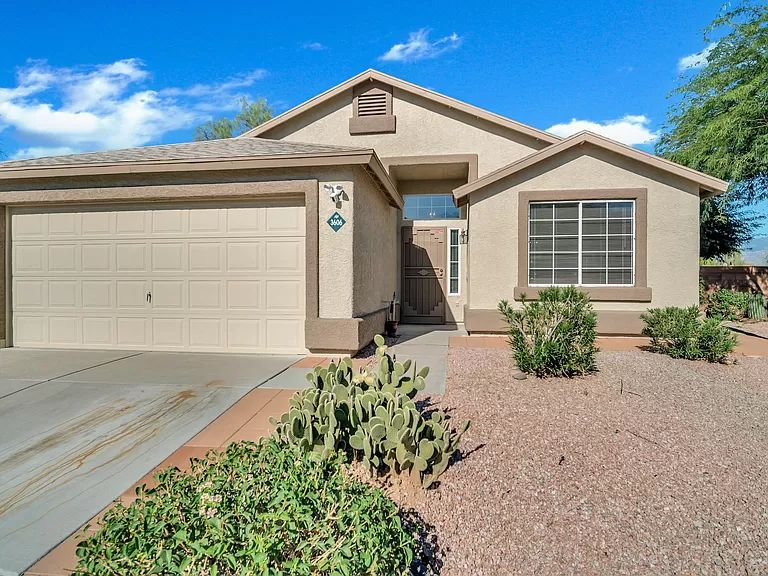Garage Door Malfunction - Just How to Get It Functioning Once More
Is Your Garage Door Stuck? Right here's What to Do Initial
When your garage door will not open up, start with these vital security checks before attempting any kind of fixings. First, ensure no one is standing near the door and that lorries are clear of the opening. Try to find evident indicators of damages like damaged panels, curved tracks, or hanging cables. If you see a snapped spring or significantly harmed elements, quit quickly and call a specialist—-- these fixings require specific devices and expertise to manage safely.

Inspect These 6 Points Before Calling a Specialist
Before assuming you need pricey fixings, go through this quick diagnostic checklist that addresses most garage door problems:
-
Power source: Verify the opener is plugged in and the outlet is functioning
-
Remote batteries: Replace dead batteries in your push-button control
-
Manual lock: Check if somebody inadvertently involved the manual lock
-
Obstructions: Try to find debris obstructing the door's course or sensing units
-
Emergency situation launch: Ensure the red emergency cable hasn't been drawn
-
Breaker: Validate the garage circuit hasn't tripped
These simple checks solve roughly 70% of garage door problems without calling for professional intervention.
10 Usual Reasons Your Garage Door Will Not Open Up
Comprehending why your garage door opener isn't working helps you choose the best remedy. Right here are the most constant reasons home owners encounter:
Dead remote batteries represent the most basic repair—-- when batteries die, the remote can't send out signals to the opener. Power failures or tripped breakers reduced electrical power to the motor. Broken springs protect against the door from raising effectively and require prompt expert interest. Sensing unit imbalance causes safety and security systems to obstruct door procedure. Track blockages quit rollers from relocating smoothly. Motor overload triggers automated shutoffs when the opener finds resistance. Limit switch troubles perplex the opener concerning door setting. Cable television damages interrupts the lifting mechanism. Weather-related problems affect door activity throughout severe temperatures. Component wear from age gradually minimizes system performance.
Problem # 1: Dead Remote Control Batteries
When your wall button works but your remote does not, dead batteries are usually the perpetrator. A lot of garage door remotes utilize either 3-volt lithium or 12-volt alkaline batteries. Eliminate the back cover of your remote and examine the battery kind. Change with fresh batteries and test the remote. If it still doesn't function, you might need to reprogram it to your opener. Consult your opener's manual for certain reprogramming directions, as the process differs by supplier.
Trouble # 2: Power Supply Issues
Garage door power issues typically originate from loosened connections or stumbled circuits. Inspect that the opener is firmly plugged into its electrical outlet—-- resonance can loosen up connections with time. Test the electrical outlet with one more gadget to confirm it's functioning. Examine your home's breaker box for stumbled circuits, particularly if you've experienced storms or power fluctuations. GFCI outlets might have tripped and need resetting. If the opener has power however will not respond, the concern likely lies elsewhere in the system.
Issue # 3: Broken or Damaged Springs
Damaged garage door springs are among the most hazardous elements to manage. If you listen to a loud bang from your garage or observe the door feels extremely hefty when trying to raise manually, a springtime has likely broken. Torsion springtimes run flat over the door, while expansion springtimes remain on either side. Never try springtime repair work on your own—-- these parts keep incredible tension that can create serious injury or death. Specialist replacement generally sets you back $150-$300 but guarantees your safety and security.
Issue # 4: Blocked Security Sensors
Modern garage doors feature safety and security sensing units that protect against closure when things are identified. These sensing units can quit the door from opening up if they're unclean, misaligned, or blocked by debris. Clean sensing unit lenses with a soft fabric and make sure nothing obstructs the unseen beam of light in between them. Inspect that sensing units are appropriately lined up—-- a lot of have sign lights that show link standing. Sensing unit issues usually settle with simple cleaning and modification.
Problem # 5: Track Obstructions or Damage
Garage door tracks guide rollers as the door goes up and down. Dust, debris, old oil, or tiny things can jam the system. Examine tracks visually and eliminate any blockages with a brush or cloth. Search for dents, flexes, or warping that might impede smooth procedure. Minor track modifications are possible for useful home owners, but substantial damage calls for expert fixing to stop more problems or safety hazards.
Trouble # 6: Garage Door Opener Motor Issues
When the garage door motor runs yet the door doesn't relocate, a number of problems could be accountable. The motor may be overloaded and shutting down as a safety measure. Gear wear, particularly in older systems, can avoid proper procedure. Chain or belt drive troubles influence power transmission. If you hear unusual grinding, clicking, or humming sounds, stop utilizing the opener instantly. Electric motor repairs frequently cost more than replacement, especially for units over one decade old.
Detailed DIY Troubleshooting Overview
Follow this organized method to garage door repairing while prioritizing security throughout the process:
Action 1: Test the wall button first. If it functions yet the remote doesn't, concentrate on remote issues. If neither works, check power supply.
Step 2: Analyze the hands-on launch cord. If it's been drawn, the opener is disengaged from the door. Push the trolley back to reconnect.
Step 3: Manually examine the door by disengaging the opener and trying to raise the door by hand. It must move efficiently and remain in area when half-open.
Tip 4: Inspect noticeable parts for damage, paying unique focus to springs, cords, and tracks.
Step 5: Examine all security functions consisting of sensors, restriction switches, and auto-reverse features.
Action 6: Test various controls (remote, wall surface button, keypad) to separate the trouble source.
Constantly use safety glasses and work handwear covers when doing assessments, and never attempt repair work on springtimes or high-tension elements.
When to Call an Expert vs. DIY Solutions

Recognizing when to call a garage door professional versus trying do it yourself repairs protects both your security and your wallet. Handle these issues on your own: dead remote batteries, power supply problems, small track cleansing, sensing unit cleansing and alignment, and basic lubrication.
Never ever attempt these repairs yourself: spring substitute or change, wire repair services, major track realignment, electrical wiring issues, opener motor replacement, or any type of repair work entailing high-tension elements. Professional specialists have actually specialized tools, training, and insurance to handle unsafe repairs safely.
Think about repair work costs versus replacement costs, particularly for doors over 15 years old. Modern garage doors provide far better security features, energy efficiency, and reliability than older designs.
Emergency Situation Garage Door Solutions
When you're stuck to a garage door that will not open and need instant access, follow these emergency situation treatments:
Guidebook Procedure: Draw the red emergency situation launch cord to disengage the opener. This allows manual operation but requires appropriate strategy to stay clear of injury. Raise the door slowly and evenly, making use of leg muscle mass rather than your back. The majority of domestic doors consider 100-150 extra pounds, making them convenient for most adults.
Momentary Fixes: If the door opens up by hand however won't keep up, prop it open with sawhorses or clamps—-- never ever use your body or lorries as assistances. For doors that won't shut completely, guarantee the opening is protected if you must leave.
Emergency Service: Numerous garage door firms offer 24/7 emergency situation solution for scenarios entailing security concerns, entraped vehicles, or complete system failures. While extra pricey than routine solution phone calls, emergency repair services provide instant solutions when required most.
Safety and security Warning: What NOT to Do
Garage door safety calls for comprehending hazardous repair work that need to never ever be attempted by homeowners:
Never ever attempt to repair springs—-- they store sufficient power to trigger deadly injuries when they snap or are improperly dealt with. Don't compel a stuck door—-- this can harm the opener, tracks, or door panels, creating extra expensive problems. Stay clear of bypassing safety features—-- sensors and auto-reverse systems stop severe injuries and residential or commercial property damage.
Do not ignore strange sounds—-- grinding, scratching, or banging sounds show troubles that get worse in time. Never use the door if cable televisions are torn or broken—-- the door might drop all of a sudden. Don't try electric repair services unless you're a qualified electrician—-- garage door openers utilize both 120V family present and low-voltage control circuits.

Preventative Upkeep to Prevent Future Problems
Routine garage door upkeep avoids most common problems and expands system life expectancy significantly:
Regular monthly Tasks: Visual examination of all elements, examining auto-reverse security functions, examining and tightening up hardware, and cleansing tracks and sensing units.
Quarterly Jobs: Lubing all moving get rid of suitable garage door lubricating substance, testing guidebook operation, and inspecting weather condition sealing.
Annual Jobs: Specialist evaluation and tune-up, springtime modification if required, and opener maintenance consisting of belt or chain modification.
Seasonal Jobs: Preparing for weather extremes, checking insulation, and readjusting opener settings for temperature level adjustments.
Constant upkeep expenses far less than emergency repairs and guarantees trusted procedure year-round.
Garage Door Will Not Open Frequently Asked Questions
Why will not my garage door open with the remote but collaborates with the wall switch?
This usually suggests dead remote batteries, signal interference, or the demand to reprogram the remote. Inspect batteries initially, then consult your opener manual for reprogramming directions.
Can I by hand open my garage door if the power is out?
Yes, draw the red emergency situation launch cable to disengage the opener, then lift the door manually. Be prepared for the door's full weight and lift with appropriate strategy to prevent injury.
How do I understand if my garage door springtime is broken?
Indications include a loud bang from the garage, the door sensation extremely heavy when raising manually, noticeable spaces in the springtime coils, or the door just opening up a couple of inches prior to quiting.
Is it secure to utilize my garage door if it will not open up completely?
No, partial procedure shows mechanical troubles that could intensify all of a sudden. Quit making use of the door and have it checked by a professional to avoid additional damage or injury.
What should I do if my garage door opens but will not shut?
Check security sensors for blockages or misalignment, check out the tracks for particles, and test the auto-reverse feature. If these do not solve the problem, seek advice from a professional.
How much does it set you back to deal with a garage door that will not open up?
Costs differ commonly depending on the problem: battery replacement ($5-$10), professional diagnosis ($50-$100), spring substitute ($150-$300), or opener replacement ($200-$500).
Can weather affect my garage door's ability to open up?
Yes, severe cold can enlarge lubricants and affect steel elements, while warmth can create expansion concerns. A lot of issues fix as temperature levels normalize, but relentless issues may require specialist focus.
Why does my garage door open up a few inches after that stop?
This usually shows busted springtimes, restriction button troubles, or track obstructions. The opener's safety features stop operation when resistance is spotted, preventing damages to the electric motor or door.
Get Specialist Aid for Complex Problems
When do it yourself troubleshooting doesn't resolve your garage door problems, expert specialists give the competence and best garage door repair company for homeowners devices needed for risk-free, long-term fixings. Qualified specialists identify issues accurately, make use of manufacturer-approved parts, and provide service warranties on their work.
Professional services consist of: detailed system examinations, springtime and cord substitute, opener repair and replacement, track placement and replacement, electric troubleshooting, and emergency solution telephone calls.
What to expect: upfront rates, certified and insured service technicians, same-day service for numerous fixings, and follow-up maintenance recommendations.
Most garage door business provide free estimates for major fixings and can provide prompt remedies for immediate issues influencing home protection or lorry access.
Getting Your Garage Door Working Again
A garage door that will not open up does not need to ruin your day or break your budget. Start with basic troubleshooting actions like inspecting power, replacing batteries, and examining for evident blockages. Several problems have quick DIY remedies that recover typical operation within minutes.
However, acknowledge when professional help is necessary—-- especially for spring-related concerns, electrical problems, or complex mechanical failures. Trying harmful fixings yourself runs the risk of significant injury and often creates much more pricey problems.
Routine maintenance prevents most garage door concerns and ensures reliable operation for several years to find. When issues do take place, address them promptly to prevent even more costly repairs and keep your home's security and comfort. Whether you require a simple battery substitute or complete system overhaul, services exist to get your garage door working smoothly once again.